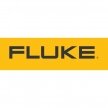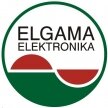-
Product Catalog
- Security and Surveillance Systems
- Automatic Circuit Breakers for Direct Current (DC) Circuits with Integrated Overload, Short-Circuit, and Voltage Stabilization Protection Functions
- Lighting with the help of electrical energy
- Automation and Control Systems
- Sealing profiles | rubber | gaskets | strips
- Inflatable Liquid Storage Tanks | Reservoirs | Bladders
- Inflatable rubber plugs for sealing high-pressure plumbing pipes
- Electrical distribution and installation
- Solar Energy Generation and Management Equipment
- HVAC control solutions for heating and ventilation.
- Special products and accessories
- Other products
- Safety tools
- Quality used products
Tempered glass
-
Read more
Tempered Glass
Tempered glass is specially processed glass that, due to its manufacturing process, possesses greater strength and resistance to impacts, heat, and breakage than regular glass. It is produced by heating the glass to high temperatures (around 600–700 °C) and then quickly cooling it. This process creates stresses that provide additional strength to the glass.
Uses:
Tempered glass is widely used in various fields due to its strength and safety. It is most commonly used in:Architecture and construction: for windows, doors, roofs, and facades.
Interior design elements: for partitions, furniture, bathroom glass, and shelves.
Automotive industry: for car windows and glass to ensure safety in case of accidents.
Electrical appliances: in lighting fixtures and heating elements, as it withstands high temperatures well.
Advantages:Impact resistance: Tempered glass is up to five times stronger than standard glass, reducing the risk of breakage.
Safety: If tempered glass breaks, it shatters into small, blunt pieces, reducing the risk of injury.
Temperature change tolerance: This glass can withstand sudden temperature changes, making it suitable for heated environments and appliances.
Aesthetics: Tempered glass has a modern and elegant appearance that fits various design solutions.
Disadvantages:Production costs: The manufacturing process for tempered glass is more expensive than that for regular glass, leading to a higher final price.
Cannot be processed after production: Tempered glass cannot be cut or drilled after processing, so sizes and shapes must be accurately planned before production.
Technical parameters:Strength: Depends on the thickness and type of glass.
Thickness: Typically ranges from 4 mm to 19 mm, but thicker variants are also available.
Color options: Available in clear, tinted, or mirrored glass.
Tempered glass is an excellent choice when a strong, safe, and aesthetically pleasing solution is needed for various industries and home interiors.No items found.
US IN SOCIAL NETWORKS
























